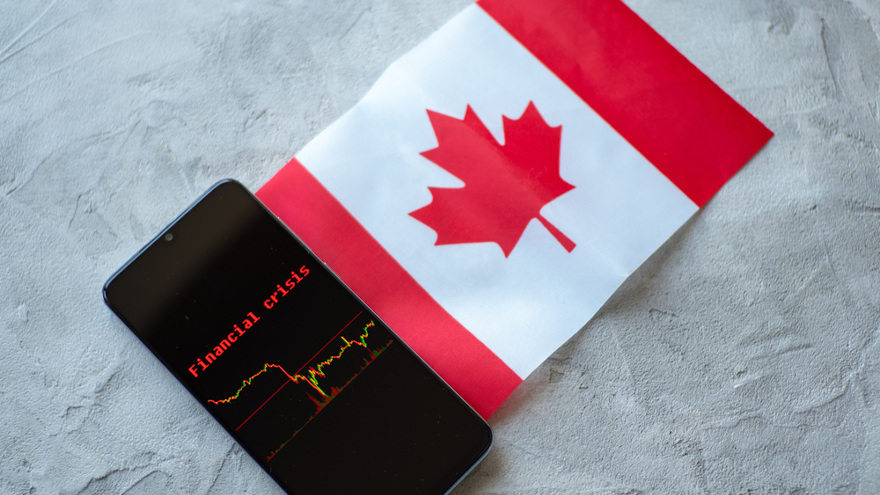Fitch Ratings explains latest assessments of Canadian auto ABS market

Image by Trismegist san / Shutterstock.com
By subscribing, you agree to receive communications from Auto Remarketing and our partners in accordance with our Privacy Policy. We may share your information with select partners and sponsors who may contact you about their products and services. You may unsubscribe at any time.
NEW YORK –
Fitch Ratings tried to provide some clarity to the Canadian financial market as the nation looked to celebrate Canada Day this week amid the coronavirus pandemic.
The firm said its recent downgrade of Canada’s issuer default rating (IDR) to AA+ Outlook Stable from AAA Outlook Stable will not result in any downgrades to credit card or auto ABS securitizations. Fitch Ratings explained its credit card and auto loan and lease ABS ratings are supported by three elements, including:
— Conservative assumptions and base case loss proxies
— Loss rates that are currently tracking within initial expectations
— Transaction credit enhancement and structural features such as rapid amortization.
Fitch Ratings indicated Canada’s IDR downgrade reflects the deterioration of public finances in 2020 resulting from the coronavirus pandemic.
Subscribe to Auto Remarketing to stay informed and stay ahead.
By subscribing, you agree to receive communications from Auto Remarketing and our partners in accordance with our Privacy Policy. We may share your information with select partners and sponsors who may contact you about their products and services. You may unsubscribe at any time.
“Canadian bank ratings are not affected by the sovereign downgrade as it does not apply incremental pressure to bank ratings under Fitch’s Bank Rating Criteria,” analysts said.
The firm pointed out Canada’s highest-rated bank is Royal Bank of Canada, which sits at AA/negative.
Fitch revised the rating outlooks for the seven largest Canadian banks to negative during its April review, “reflecting sensitivity to further deterioration in Fitch’s economic outlook, independent of any potential future rating actions on the sovereign.”
Fitch revised its 2020 asset performance outlook for Canadian credit card and auto loan and lease ABS to negative from stable in mid-April.
“With weekly unemployment filings breaking historical records during March and April and negative GDP forecast for 2020, Fitch expects consumer delinquencies, asset-specific recovery rates and ultimately losses to face pressure in 2020 and lead to weaker ABS performance,” said Fitch analysts, who currently rates seven credit card ABS programs with more than 35 transactions, one auto loan transaction and two auto lease ABS transactions.
“The significant relief for consumers through new government income assistance programs and payment relief offered by several Canadian banks are expected to cushion some of the effects in customer delinquencies and charge-offs in the short term,” analysts continued.
“However, ABS performance is expected to be weaker compared with pre-pandemic levels as many consumers were already financially stretched, with household debt-to-income near record highs prior to the crisis,” analysts went on to say. “Fitch is monitoring transactions for any impact to performance and cash flows from payment deferrals implemented by servicers.”
Fitch pointed out that automotive captive finance companies have offered new payment relief programs during the lockdown, which will lessen the pressure on delinquencies but reduce cash flows in the short term.
In addition to payment deferrals, most captive finance lenders have also offered temporary lease extensions, providing some relief for near-term declines in lease cash flows, according to Fitch
Fitch’s global base case coronavirus scenario assumes a slow recovery starting in the third quarter.
In this scenario, analysts explained credit card portfolio delinquencies and charge-offs are expected to increase and monthly payment rates slow as a greater number of borrowers become unable to make timely or minimum payments.
Fitch added that auto ABS will also experience an increase in delinquencies and lower used vehicle values due to dislocation in the wholesale market and auctions, with the potential to drive credit losses higher in the short term and pressure residual values.
Fitch closed by noting that it has incorporated prior recessionary period loss performance when deriving both credit card and auto ABS losses, “which should buffer ratings against charge-offs/losses anticipated in our base case.”
Analysts concluded by stating, “The risk of negative rating actions will increase under Fitch’s coronavirus downside scenario, which considers a more severe and prolonged period of stress with a halting recovery beginning in second quarter 2021.”


